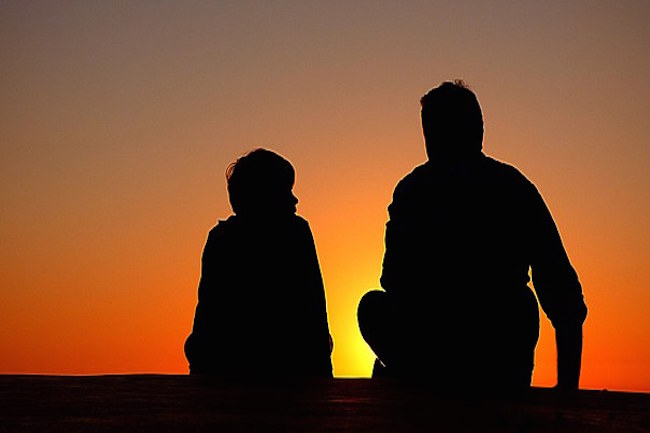Why Do We Kill Our Cats? How To Talk To Kids About Death By David Marcus for The Federalist
My 9-year-old son wanted to talk about death. He might have taught me more than I taught him.
We walked out into the newly cold mid-November night. Coats and scarves retrieved from storage. Dad had a thing that night, so son was going to spend the night with grandma. The 9-year-old broke the silence of the walk and asked, “Dad, why did we kill Aida?” Aida was our cat who died a few years ago. “The vet said she was in a lot of pain, and she couldn’t cure her,” I said. “But what if we had just let her live? Maybe she could have lived another week, or another year,” my son said.
“Yes,” I said. “That’s probably true. She probably could have lived a little longer, but she was in pain, and with animals, well, we try to stop them from being in pain.” “But wasn’t your dad in pain? Sorry.” He looked away, keenly aware he had transgressed something. “Why are you sorry?” I asked. “I’m sorry your dad died.” “You mean Grandpop?” I asked. “Yeah, I’m sorry,” he said. I told him it was okay. These are normal and important questions.
“So why do we just kill animals but not humans who are in pain,” he asked me. “Well,” I said, “We believe human beings are imbued with a consciousness that is different from animals, even though we are actually animals, we have an awareness of ourselves that makes death different, not just a question of ending pain.”
“But Bagheera has consciousness,” he said, referring to my alive cat. “Oh?” I asked “Why do you say that? ““When I pet her head,” he said, “she sits up higher to get more petting, she knows stuff.” “Yes,” I said, “but you know that might just be reacting to stimulus, not a real understanding of what she or the world really is.” He took my hand as we crossed the street.
“Dad? Do you think your dad is still around?” This is a hard question to be asked by your child. His grandfather had died a few weeks before, and his form of grief has seemed to be comforting me. “Well, what does the catechism tell you?” I asked him. “That his soul is in heaven,” he said. “Well?” “I don’t know if I believe that, dad.” The wind whipped up a bit. Our little Brooklyn neighborhood suddenly felt huge. I thought the earth was going to open up.
There comes a time for honest talk. “I didn’t believe for a long time,” I said, “I mean it seems crazy, right?” “Yeah,” he said, “I think Grandpop is just gone, like Aida, you just live and then you’re gone.” I squeezed his hand a little, “Do you really think that?” “Yeah,” he said. “I’m sorry.”




